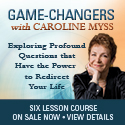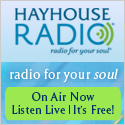My replies on the proposed points of consensus
After an encouraging start, we've received no new comments in the past week, despite our new audio feature that we'd hoped would make it easier to speak up. In any case, last week I promised to reply to the comments we'd already received. I'm reprinting all the comments we've gotten so far. My replies are in italics below.
Thanks, CeCe. First, you ask if there is any “legitimate medical evidence” that Reiki helps reduce stress. Of course, we could argue all day about what “legitimate medical evidence” is, but in short, yes,, there is evidence. For example, several studies are cited in this article, “Reiki for Mind, Body, and Spirit Support of Cancer Patients,” by Pamela Miles in the journal Advances in Mind-Body Medicine. You might also want to take a look at some of the other articles on Pamela’s web site, reikiinmedicine.org, as well as this January 2008 article from the University of Arizona News on a Reiki study done there.Hi: As your list grows, it would be helpful to separate what Reiki is from what Reiki isn't. Reiki can help reduce stress is a very weakly written "advertising" claim and to me confusing. People believe Meditation can help reduce stress, so this claim doesn't make Reiki seem very wonderful to me. Do you have or know of any legitimate medical evidence of studies pre/post Reiki treatments with physical or emotional measures of stress changed? Or is this only anecdotal and testimonial in nature. that people say they feel better?
As a Master, I don't doubt the power of Reiki. The reason I ask is that strong evidence can make for a stronger, truer claim of what Reiki is. And the statement about stress is critical because many believe 75% of all illness begins with stress. Perhaps a definition of stress can help improve the strength of the claim.
In the meantime, I also like something about the following new statements regarding healing. I guess the comments are difficult to grasp because in a way, we are describing the unseen.
1. Reiki removes energy blockages which promote stress and disease.
2. Reiki promotes the free-flow of "chi" or universal life energy, increasing the individual's ability to heal themselves naturally.
3. Reiki complements and enhances traditional healing therapies.
I enjoy your column. Keep at it.
Best,
CeCe Inwentarz
A definition of stress? Dr. Hans Selye, the Austro-Hungarian endocrinologist who began researching the subject in the 1930s and later popularized the term, defined stress as “the non-specific response of the body to any demands made upon it.”
I like the three points you propose, although we must concede that so far there is no “legitimate medical evidence” of the existence of either chi (ki, qi) or energy blockages.
I’d love to hear/read what others have to say.
Thanks again,
Janet
That’s a good one, Arline. Let’s add it to our list and see if anyone disagrees.Hi, I've recently started to receive the Reiki Digest newsletter and am really enjoying it. I've been Reiki since 1987 and a teacher since 1990. I love the idea of a list of points of consensus. I would like to suggest one: No intuitive or psychic abilities are needed to be able to do Reiki.
Blessings,
Arline Rowden, Reiki Master Teacher
Thanks,
Janet
Hi, here is a humble contribution to the debate on three of the issues:
Whilst the statement “17. Reiki is practiced by people of all faiths, as well as agnostics and atheists” may be correct, it is not possible to verify that practitioners of all (every) religion practice Reiki. It may be safer to refer to members of the principal religions (although not all denominations of the major religions or faiths).I especially do not think one can say: “16. Reiki is compatible with all religions” for the simple reason that it is for the adherents of religions to decide the criteria on which that matter needs to be decided and it is simply not practicable to do that even if it were logistically possible, which I suggest it is not. Further (and much more straightforwardly), there is indeed evidence that members of some religions assert strongly that Reiki is antithetical to doctrines they hold to. So that claim is I believe not possible to fairly make.
I will though add a couple of practical examples that may help make my point from a slightly different perspective:
(1) I eat all kinds of meat (although much of family are vegetarians and not all of the same beliefs on religious issues). I believe it is compatible for me and they to eat meat of all kinds — from both a religious and moral point of view. My kids happen not agree with me or at least have for themselves made a choice not to eat meat (even though some of us happen, in fact, to share practice of Reiki. . . and we share many otherwise “moral” values).
(2) More widely, on religious grounds, I feel it is fine to eat pork but Jewish and Muslim friends do not. Just because I think it is OK to eat pork I cannot enforce that viewpoint upon those who do not accept that. Me saying it is OK does not make it OK for them! Likewise, whilst as a practicing Christian I accept Reiki, that does not mean I can enforce that belief on others who may have different beliefs than me, whether Christian or otherwise. I would in fact object most strongly to being told by an atheist, agnostic or Buddhist (or even someone who feels to be a Christian) that Reiki is compatible with my religion, even if I believed that myself; that is a matter for me to decide. It would of course be OK, and indeed rather nice, if we could agree that Reiki (in the way we each practice it) is OK!
Good points, and well stated. I’ll withdraw both of those items for now.
On the issue of whether, “14. Reiki has never been known to harm anyone. . ." There is in fact some difficulty in determining whether one is receiving Reiki, albeit “packaged” as such. I know of a couple of cases where people have felt “attuned” to something (said to be Reiki) that they felt was harmful to them and they sought to be “un-attuned”.Some practitioners are into all kinds of add-ons which could not be said to have anything to do with Reiki (at least how it was originally practiced by its founder or even ‘conventionally’ by most practitioner standards or the major schools). Whilst I know of no harm that could be done by what I would consider Authentic Reiki, the determination of what a person actually receives might be a different thing. . . When one can (online) and without any questions become supposedly attuned as a Reiki Master for free, without having prepared or even knowing the slightest thing about Reiki — can anything be considered wholly safe from harm?
Another good point, and somewhat related to your previous ones. As there is no standardization, there is no way to know or control what some people are doing under the name of Reiki, whether offering free online attunements or adding religious or other practices that go far beyond the system Mikao Usui developed. When those religious practices get tacked on, then that can lead those of other faiths to believe Reiki is not compatible with their traditions.
I hope this is helpful. . .Yes, it is helpful. Thanks, Mike!Mike Oram Lineone
Janet
Hello, My name is Jeanne and I have been a Reiki practitioner for 3 plus years, a Reiki master for one. I have to say I strongly disagree with number 18 this week (18. Neither practitioner nor recipient need believe anything about Reiki in order for it to work.) I think it is important to note that you need faith and/or believe in something for it to have any positive effect on you/ your healing. I attribute this to people who hear they have cancer and view it as a death wish versus others who have cancer and fight their damnedest to beat it. I think it is especially important for the practitioner to believe in Reiki. What kind of message are we sending the world otherwise? Here is the great healing modality but we don't even believe in it, but we practice it. There has to be some degree of a positive view on Reiki for it to have any kind of lasting impression on the practitioner and the recipient.
Kind Regards,
Jeanne Tedesco, Certified Reiki Master
Dear Jeanne,
With all due respect, I’m going to hold my ground on this point. Reiki founder Mikao Usui himself was once asked “Do I have to believe in Usui Reiki Ryoho to get a better result?” His reply was that no belief is required, and he pointed out that children and the unconscious are unlikely to either believe or doubt whether Reiki can help them. To that I would add that one of the most rapidly growing areas of the field is Reiki for animals, who also would not be expected to believe. While I do agree that it’s helpful to have a positive attitude, or at least some hope, when dealing with illness, I don’t believe it’s a prerequisite. If belief is required, then it’s faith healing, not Reiki. And sometimes a positive attitude can be unhelpful, as illustrated by the recent book Swimming in a Sea of Death, by David Rieff, son of the late Susan Sontag, about his mother’s final days and her insistence on hope to the point of denial.
Obviously those of us who practice Reiki have some belief that it is of value — otherwise why would we bother. Even so, we believe that it can be helpful, not that it can solve any or all problems.
Have you ever had a client who was skeptical but reluctantly agreed to try a Reiki treatment? In my experience, those people often go on to be regular clients and even refer others.
Yes, though it has been widespread in modern Western Reiki lineages. Many of Mikao Usui’s students in the 1920s were Japanese navy officers who wanted to be able to use Usui’s healing system for first aid while at sea.I have a question about one of the proposed points of consensus, "Reiki has no
contraindications". I have read many, many places that we should not treat an
accident victim if we believe there might be broken bones, due to the effect
that Reiki healing might have in mending the bones before they are set. This
might mean that the bones would have to be re-broken in order to set them
properly. Is this a myth?
Thanks, Linda.I also have read that when using Reiki with diabetics, it can change their blood
sugar levels and must be very carefully monitored.When I read that Reiki has no contraindications, it seems as though Reiki can be used in any circumstances without any concerns. As a newer Reiki practitioner, it would be important to know if these situations (or any others) require special consideration.
Thanks for your efforts,
Linda Smulka
I agree that diabetics and those who are taking prescription medications should be watchful, whether adding Reiki, meditation, aerobic exercise, or other activities that could bring about metabolic or other changes. That’s something to pay attention to, but not a contraindication.
All the best,
Janet
16. Reiki is compatible with all religions.
Where is your evidence for this claim? Even covering all major religions seems difficult.
Posted by
Chris @ Martial Development to The Reiki Digest at 6:42 PM
Thanks, Chris. I’m conceding that point and deleting it from the list for now. Maybe Adam’s comment (below) is a solution.
Janet
Thanks, Adam. That does sound better to me.16. Reiki is compatible with all religions.
Perhaps it would be more accurate to put it more in term of this:
'Reiki does not exclude practitioners of any religion'
Just a suggestion — this would not then make any claims about the beliefs or requirements of any religion and yet cover what I believe to be the intent of the statement, that practitioners and receivers of Reiki are not judged on their personal beliefs.
Adam
Janet
Thanks, Patty (and Jo, and Arline). I agree, and since Arline also suggested this point:Here is a comment made by one of my students regarding the list about Reiki you are putting together for the Reiki Digest. Arline Rowden is my teacher and she sent me the info.
Reiki can foster personal insights for both the practitioner and the client, and it can to heighten intuitive and/or spiritual sensitivities in both practitioner and client. I don't know if these fit into your list or not, but they seem to occur regularly in my practice. Thanks for sharing this. Jo M.
Regards,
Patty Penner, Reiki Master Teacher
No intuitive or psychic abilities are needed to be able to do Reiki.
I would also point out that those two points don’t necessarily contradict each other.
I would tend to agree with those points, Caley, and I’m curious as to what others think.Hello
Thanks so much for putting together these suggestions.
The two that I would add areReiki is effective being sent from a distance.
Reiki works for many aspects of life including relationships, health, sleep, pain relief, right livelihood, guidance, and prosperity.
Feel free to modify the above as you see fit and as fits best with your experience.
Blessings
Caley I. Powell
For now, since we’ve got some discussion going, I won’t add any more proposed points of agreement. If you’d like to join the conversation, you can do so by adding a comment to this post on The Reiki Digest web site, sending an email to editor@thereikidigest.com, or clicking on the “call me” button below to leave your spoken comments on our voicemail.
































0 Comments:
Post a Comment
<< Home